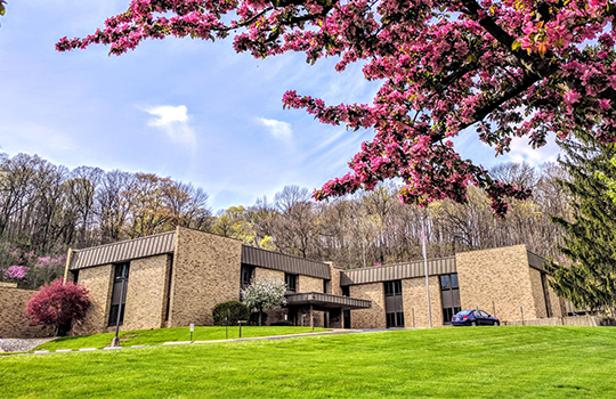Filling the mental health care need
Written by Story by Chris Adam
The School of Nursing is helping to increase the number of mental health care providers in Tippecanoe County and Indiana through the creation and implementation of a psychiatric/mental health nurse practitioner program.
The course development for the program is well underway, and enrollment of its first students is expected in summer 2018.
Understanding the need
The Indiana State Department of Health has designated Tippecanoe County a Mental Health Professional Shortage Area, and the 2016 Tippecanoe County Community Needs Assessment cites mental health care as the No. 1 need of this community. The new Purdue program will help address the need by preparing graduates for the American Nurse Credentialing Center national certification as a primary care psychiatric nurse practitioner.
“As a primary care practitioner, I can tell you firsthand that we don’t have enough access to mental health care here in the Lafayette area,” says Nancy Edwards, director of the Purdue adult gerontology nurse practitioner program, who will oversee the curriculum development for the program. “Our new practitioner program will provide additional health care professionals who can work with patients to address a variety of mental health conditions.”
In 2016, North Central Health Services and members of the Mental Health Forum of Tippecanoe County approached Purdue nursing about creating a program to help address the shortage of mental health providers in Lafayette and surrounding areas. NCHS, which operates River Bend Hospital, a nonprofit psychiatric inpatient health care facility, and provides grants to address community health needs, has provided a four-year, $734,383 grant to support development and launch the program.
“The Purdue School of Nursing psychiatric/mental health nurse practitioner program launch is an excellent example of the partnerships NCHS initiates outside its capital grant program to directly address the most critical health needs in our area identified by the River Bend Hospital community health needs assessment,” says Stephanie Long, NCHS president and CEO. “The program has the potential to significantly impact the mental health workforce shortage by nearly doubling the number of PMHNPs trained in Indiana every year.”
The shortage of mental health professionals is not limited to Tippecanoe County. According to a 2017 report by Mental Health America, Indiana ranks 45th of the 50 states for access to mental health care. One of the major contributors to the state’s low ranking is the lack of access to mental health care providers.
“We know that many of our Purdue nursing graduates remain in this area to practice after graduation,” says Susan Kersey, clinical assistant professor and lead content specialist on the new program. “By creating this program, we are directly creating a vehicle to fill the need for mental health professionals here at home.”
According to Edwards, two primary factors have contributed to the increased need for mental health care professionals. First, more people are willing to seek help for mental health conditions. Second, that increase in patients has led to a better understanding and awareness of health care providers for referring individuals for mental health care assistance.
“The stigma is less now than in the past,” Edwards says. “Many people used to just try to deal with their mental health conditions on their own. Now, they understand it’s a medical condition and that medicines in conjunction with therapy do work.”
Addressing the need
The Purdue program will provide three pathways to build the psychiatric mental health nurse practitioner workforce in the Tippecanoe County area: a 12-month certificate program for current nurse practitioners in another field, a two-year postbaccalaureate nursing degree (BSN) to master’s program, and a three-year post-BSN to Doctor of Nursing Practice program.
“I think one of the most exciting aspects of this new program is that there are now three ways for students to obtain their credentials,” Kersey says. “Students can choose the pathway that best works for them and, at the same time, address the needs of the communities.”
Although the school’s three primary care nurse practitioner programs, adult gerontology, pediatric and family, have long integrated mental health assessment and care into their curriculum, psychiatric mental health nurse practitioners are uniquely qualified to help alleviate the shortage of mental health providers in the Lafayette area and surrounding counties. The new program provides a direct path for students to obtain a degree and certification specifically focused on mental health.
In addition to the core nursing courses, the new program will include classes focused on the pharmacology of mental health, therapy modalities, and the identification, diagnosis, and treatment of mental health conditions. The courses also will include clinical components.
“Students will learn alongside experienced mental health professionals working with patients and a variety of mental health conditions,” Edwards says. “I cannot stress enough how key the community support is as we undertake this program. It has been huge because our community partners have generously offered to provide clinical preceptors for our students.”
Students who graduate from the program and obtain proper certification will be qualified to work in mental health centers and also in primary practice locations.
“Placing these mental health nurse practitioners in primary care practices will ensure better communication with primary physicians and ultimately better care for patients,” Edwards says.
The new program is also in line with Purdue’s land-grant mission, part of which is to meet the needs of the area community and the state.
“Our mission in the School of Nursing is to educate practitioners who can meet the needs of our community and community partners,” Edwards says. “That’s in direct cooperation with the University’s mission to serve the needs of Indiana and the people of Indiana. This program provides a very specific resource to meet the mental health needs here in Lafayette and in the surrounding counties.”
